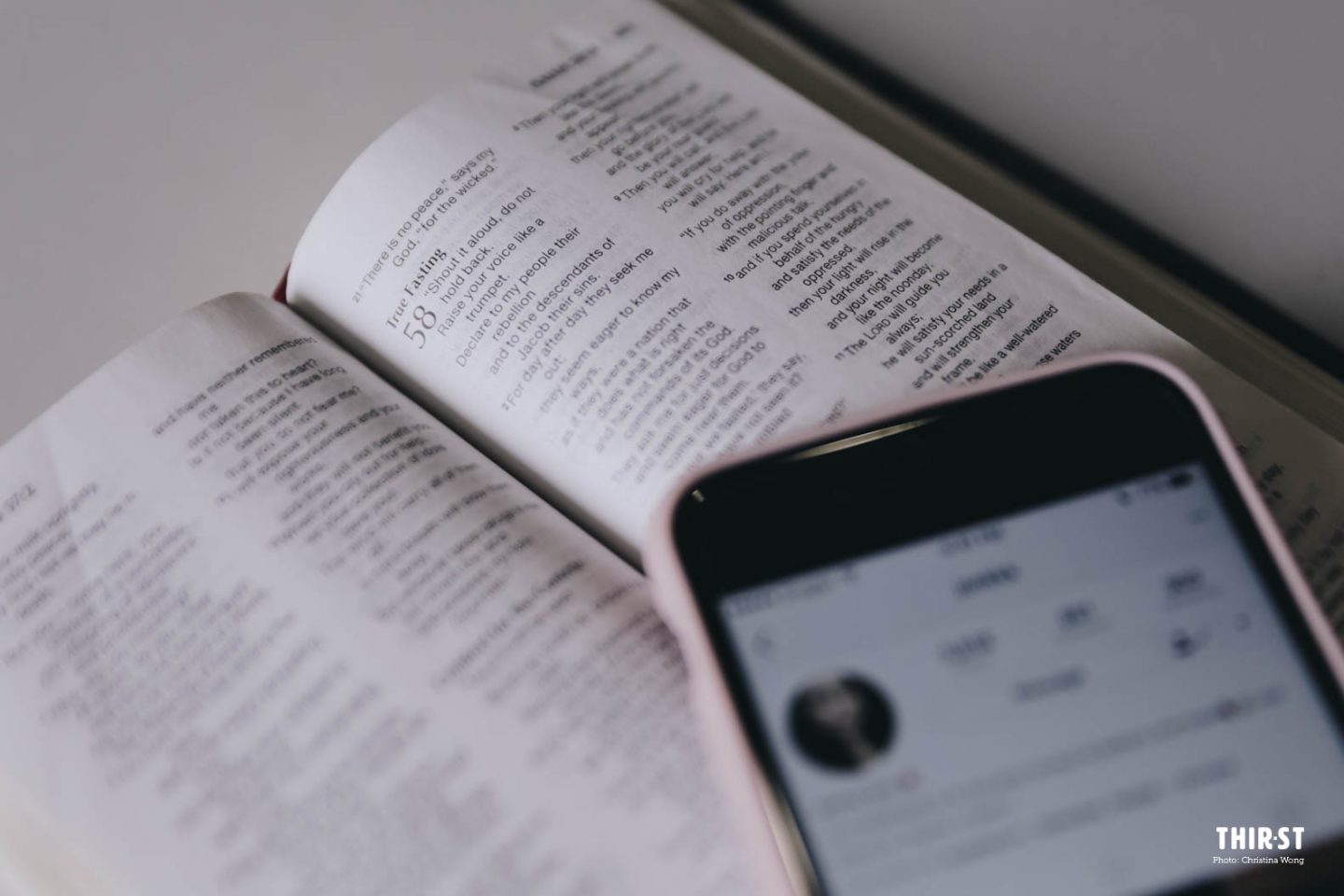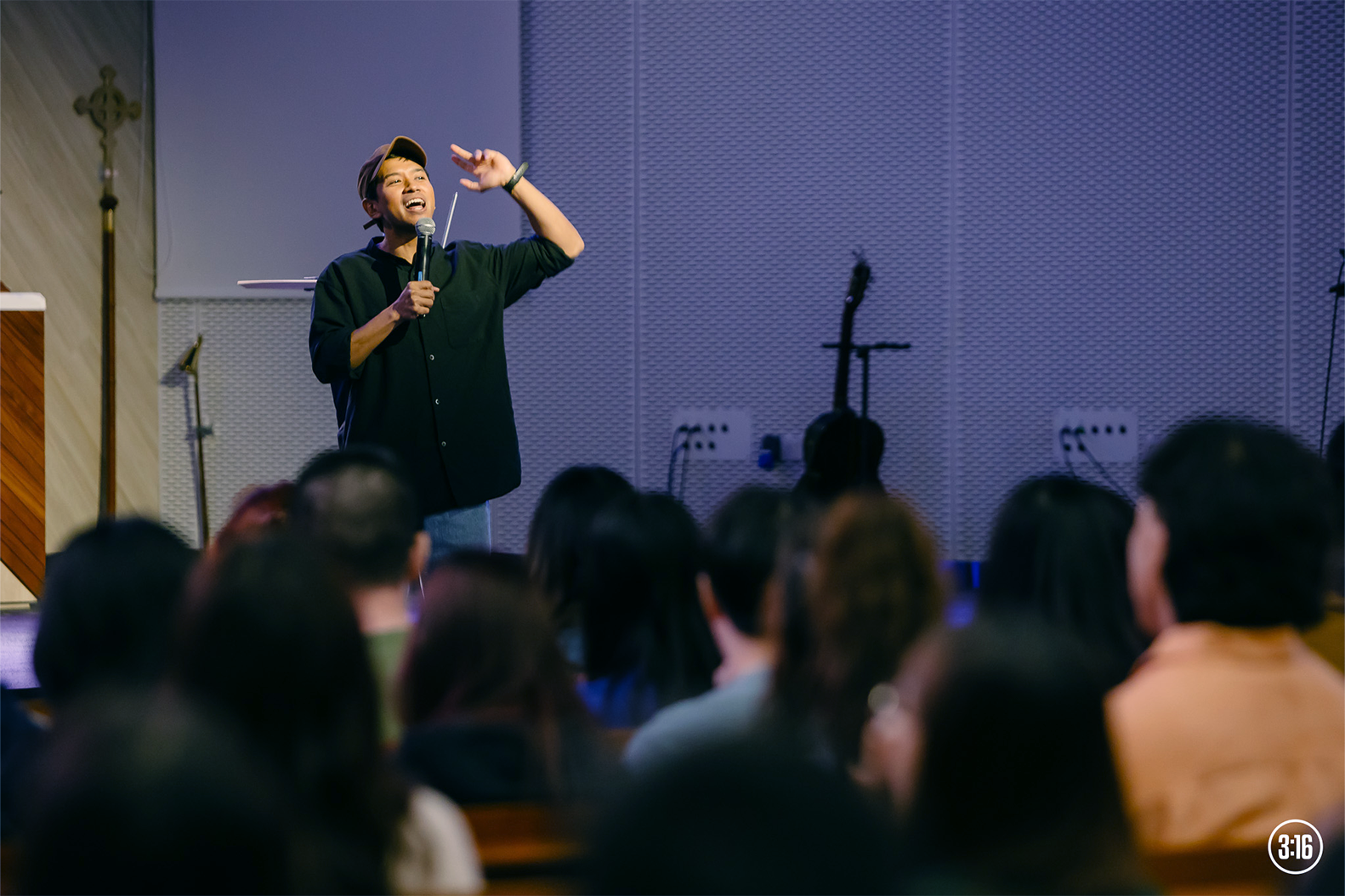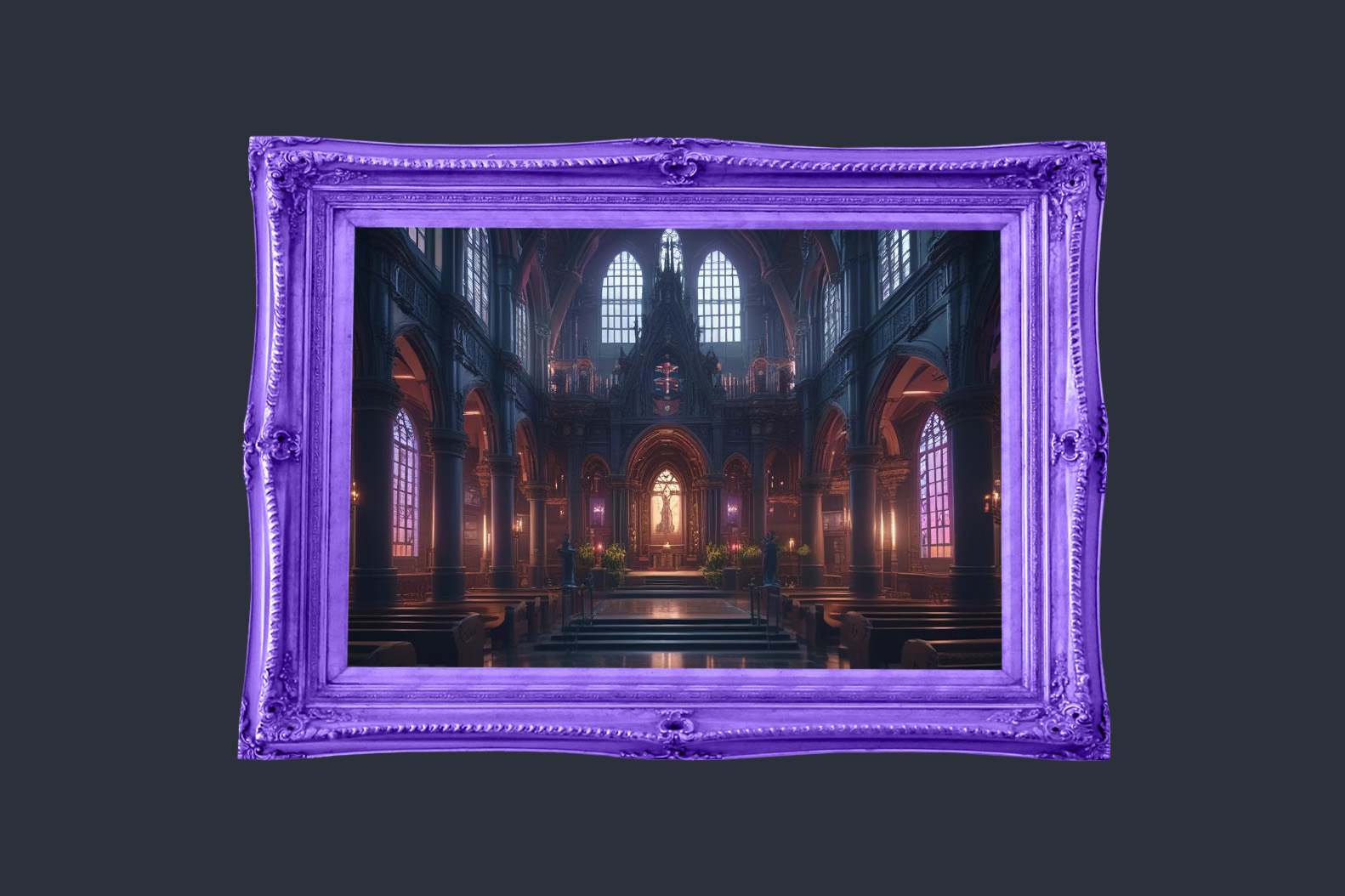My Christian brethren might give me some side-eye at this confession, but I’ve never fasted.
In my church, fasting season every year stretches from July 1 to August 9. That’s 40 days leading up to National Day – 40 days, because that’s the number of days Jesus fasted for spiritual preparation in the wilderness (Matthew 4:2).
I just never wanted to do it.
After more than 20 years in church, I probably know all the best reasons for fasting, and yes, of course I agree that it’s a great spiritual discipline. But for me, it was such a hassle to skip socialising at mealtime, risk a gastric attack or just stop work to pray.
So I honoured the fasting season as much as I could without forgoing meals, such as going without meat or solid foods. I recall trying a computer fast – but only because I had to study for exams anyway.
In recent years, I focussed on the “praying” side of things, spending my morning commute in silence, reading and praying along to the 40-Day Fast & Prayer Booklet. That extra time spent in prayer did wonders for my spiritual focus and hearing God’s words in season for me.
I just thought that was good enough.
 But this year, a specific challenge came to my attention from different sources: Fast from Instagram. Over and over, in the middle of various conversations, people would look at me knowingly and suggest it.
But this year, a specific challenge came to my attention from different sources: Fast from Instagram. Over and over, in the middle of various conversations, people would look at me knowingly and suggest it.
My life was all about the ‘gram. All 5,818 posts since 2010. It was my journal, my message board, my pulpit.
My newsfeed was my community. The people who shared life in short bursts and pretty pictures from their daily adventures, heartfelt ramblings and little inspirations. We were each others’ entertainment channels and motivational speakers. We were family.
Only best friends tell each other everything, right?
At the height of my frustration to restart and move on from the past, I deleted the Instagram app with trembling fingers and replaced it with the BibleGateway one.
But like an episode on Black Mirror, the dystopic hyper-reality TV series, the Instastory of my life became an idealised documentation of what I wanted to believe my life looked like.
With a vulnerable but well-angled caption, bad days could become good days. With the right amount of VSCO editing, good days could become great days. If we followed each other and liked each other’s photos, we were friends – even if we never actually spoke in person. And imagine if we left comments …
After a while, as real life took a detour into the valley, I found the two worlds stretching further and further apart, like mozzarella on a pizza. I wanted to be #real about how I was feeling so that others wouldn’t feel alone in their own suffering or think I lived a perfect, pain-free life, but on an open platform like Instagram, you aren’t actually expressing as much as you’re composing.
Nothing is really that raw.
 After hearing how #triggered I was getting over the constant comparison, ensuing FOMO and my unspeakable, offline struggles, my real-life best friends had had enough. “Get off Instagram for this year’s 40-Day Fast & Pray,” they told me. And when I protested, asking how I was going to document an important wedding and upcoming trip to Hong Kong: “You can always post when you get back on it.”
After hearing how #triggered I was getting over the constant comparison, ensuing FOMO and my unspeakable, offline struggles, my real-life best friends had had enough. “Get off Instagram for this year’s 40-Day Fast & Pray,” they told me. And when I protested, asking how I was going to document an important wedding and upcoming trip to Hong Kong: “You can always post when you get back on it.”
So after much resistance, but also at the height of my frustration to restart and move on from the past, I deleted the app with trembling fingers and replaced it with BibleGateway on July 9.
I was late to the fasting party – not quite 40 days – but this was the challenge: One month of no Instagramming, from July 9 to August 9. Game on.
So that’s where we are now, the day after National Day. It’s been 31 days since I left Instagram, and the thought of downloading and reopening the app is strangely as daunting as it was to delete it. Because in my deliberate departure, I learnt 3 big lessons that will stay with me longer than any social media footprint would.
3 LESSONS FROM MY INSTAGRAM FAST
1. SOLITUDE IS SCARY
… when you’ve forgotten how to be alone
The first night I went without Instagram, I had a meltdown. By bedtime, knowing I couldn’t write something sad but well-scripted on my Instagram, the weight of my aloneness was crushing.
Nobody will know I’m suffering!
But it was the next realisation that broke my heart: I was just as alone as I had ever been, with or without Instagram.
I’d never cried so hard, but the revelation made me all the more determined to reclaim my solitude – and my sanity.
2. SILENCE IS SURREAL
… when nobody knows where you are
On July 16, I slipped out of the country on my own, telling as few people as I could. It’d barely been a week since I’d started the fast, but I was actually excited to push my new-found aloneness to the next level. On one of the days, I made my way to Hong Kong’s Dragon’s Back Hiking Trail and trekked in silence up the stone-strewn hills.
If this had been any other trip, I probably wouldn’t have done it alone, and definitely not without Instastorying my entire journey.
But as I walked on in almost 100% unadulterated, no-longer-scary solitude, even my time with God felt different. For once, it was truly just Him and me. Not Him and me and my 661 followers. And when I stopped to survey the rolling green slopes, coastal winds billowing past me, I knew He was closer than He’d ever been to my once-distracted heart.
3. STILLNESS IS SWEET
… when your soul is at peace
As the end of my fast drew near, my cell leader asked me what filled the void left behind by Instagram. “Facebook,” I replied with a laugh. It was a joke, but I wasn’t entirely innocent. Albeit a poor one, Facebook had sometimes been a substitute for my idle time.
One night, when I could feel the sadness welling up again, I found myself reaching for my phone and proceeding to scroll through my Facebook feed mindlessly for the next hour. But when I’d put it down, tired enough to fall asleep quickly, everything I’d been feeling just came rushing back in.
That weekend, I heard a powerful message from the pulpit: “When God is doing a new thing in your life, expect birthing pains. People tend to shrink back when they feel pain, but in labour, when the pain comes, the doctor will tell you to push. So don’t let the pain you’re feeling now paralyse you. Push!”
Push. Pray Until Something Happens. The next time I felt the peace within disrupted, I reached for my Bible and stayed with God until the stillness returned.
 Fasting brings to mind the story of Jacob wrestling with God (Genesis 32:22-32). Like the hip bone, there are certain things in our lives that we heavily rely upon. They are core support structures within us, and when these are displaced or broken, the way Jacob had his hip wrenched from its socket, we find ourselves in great pain and discomfort, unable to function like we used to.
Fasting brings to mind the story of Jacob wrestling with God (Genesis 32:22-32). Like the hip bone, there are certain things in our lives that we heavily rely upon. They are core support structures within us, and when these are displaced or broken, the way Jacob had his hip wrenched from its socket, we find ourselves in great pain and discomfort, unable to function like we used to.
But in that upheaval of what we depend on, with everything suddenly out of balance, we find ourselves clinging more tightly than ever to God – just as Jacob did.
“When God is doing a new thing in your life, expect birthing pains. People tend to shrink back when they feel pain, but in labour, when the pain comes, the doctor will tell you to push. So don’t let the pain you’re feeling now paralyse you. Push!”
In fasting, we come face to face with the “hip bones” we’ve created for ourselves, our coping mechanisms and security blankets. We could even deny ourselves of them, or of food – our greatest need – to bring us back to that place of total dependency. Hips out of sockets for 40 days, clinging to God like never before.
We’ll find that we don’t depend on them quite the same way, even when the season ends.
“Is not this the fast that I choose: To loose the bonds of wickedness, to undo the straps of the yoke, to let the oppressed go free, and to break every yoke?” (Isaiah 58:6)
The fast has been instructive enough to make me wonder what I’ll see if I gave God the full season of 40 days to teach me what He wants to teach me. So I may have started late, but I’ll go into extra time now, till August 19.
In an age of insta-gratification, what’s another 10 days?









